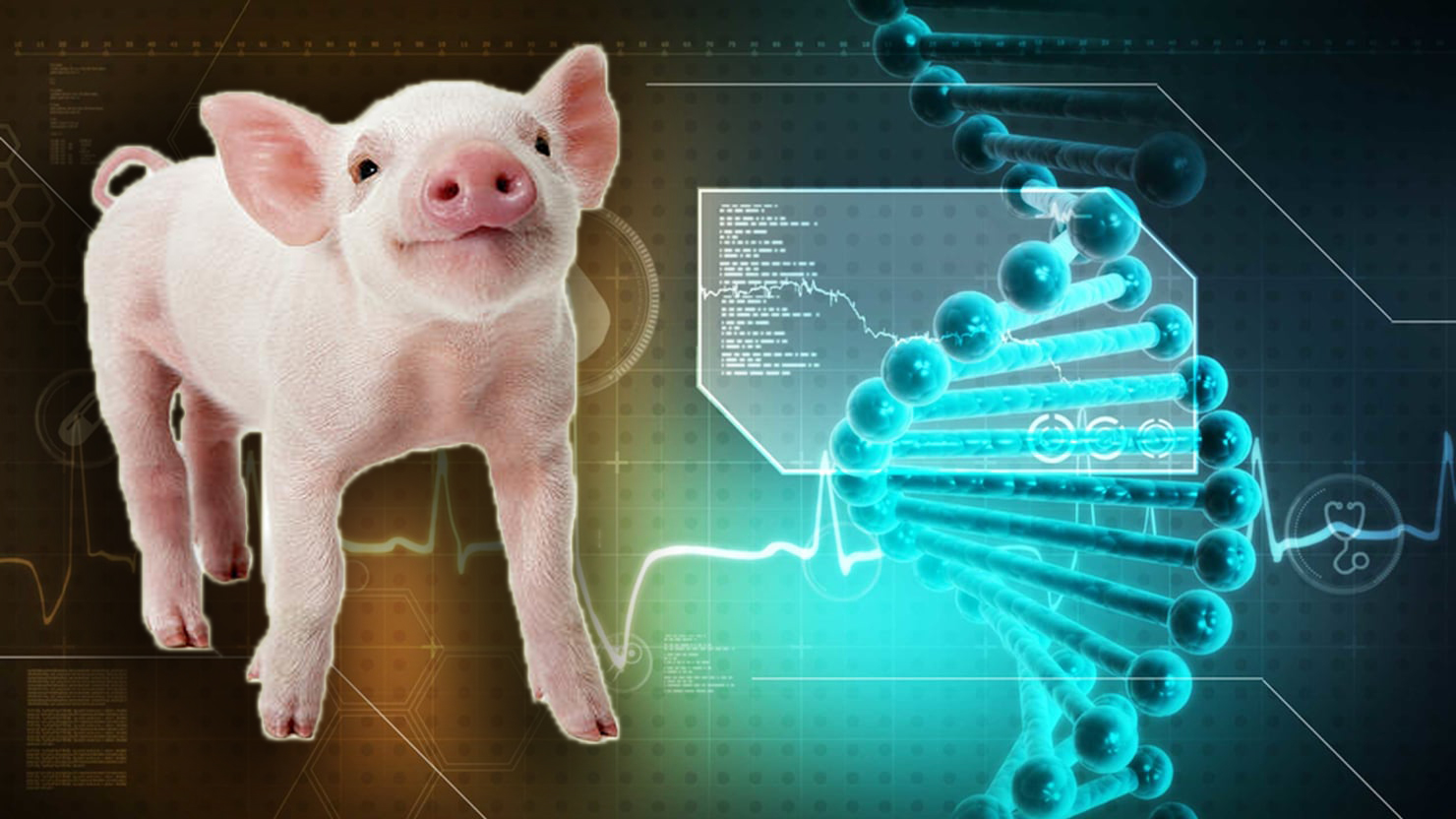A New Era for Pork: Gene-Edited Pigs Approved for Consumption

The U.S. Food and Drug Administration (FDA) recently approved new genetically modified (GM) pigs for human consumption
Researchers engineered the GM pigs to resist Porcine Reproductive and Respiratory Syndrome (PRRS), a viral disease that costs the U.S. pork industry US$1.2 billion annually from 2016 to 2020, according to Iowa State University researchers. The U.S. Department of Agriculture (USDA) calls PRRS “the most economically important viral disease of pigs worldwide.”
To combat PRRS, United Kingdom-based animal genetics company Genus partnered with researchers at the University of Edinburgh’s Roslin Institute. Using the gene-editing tool CRISPR, the team removed a gene that enables the PRRS virus to infect pigs.
“When we’re looking at these edits that are knockouts, like this pig, it is no different from what happens in conventional breeding programs,” Alison Van Eenennaam, an Animal Geneticist and Biotechnology Specialist at the University of California, Davis, tells Food Tank. “Nature is basically gene editing all the time.”
Van Eenennaam says the advancement has the potential to increase animal welfare, cost savings, and environmental benefits. “They’re more sustainable pigs, and I think they’ll have a legitimate sustainability argument…if 8 percent of your pigs die and now, they don’t, that’s going to have a better carbon footprint.”
PRRS weakens pigs’ immune systems, making them vulnerable to secondary infections, according to Christine Tait-Burkard, Group Lead at the Roslin Institute. These illnesses often require antibiotics, linking the virus to increased antimicrobial use on farms.
Tait-Burkard tells Food Tank that gene editing is not a cure, but a powerful tool for prevention. “Preventing viral disease, whether through vaccination or genetic resistance, will always have beneficial effects on decreasing antimicrobial interventions,” she says.
But some bioethics experts caution that gene editing can create unintended consequences for animals. The Nuffield Council on Bioethics warns that lifting the current ban on the commercial development of gene-edited animals could actually worsen livestock welfare.
In a recent briefing to the UK Parliament’s Westminster Hall debate on gene editing, the Nuffield Council on Bioethics says that genetic interventions designed to prevent disease could enable animals to endure poorer living conditions, increasing the risk of overcrowding. “Care must therefore be taken to ensure that genome editing does not contribute to an acceleration of unethical or unsustainable practices,” the Council states.
They emphasized that the introduction of genetically edited animals to the marketplace should be guided by robust public dialogue and aimed at raising animal welfare standards.
Public reception also remains uncertain. A 2023 review in Frontiers in Genome Editing finds that public attitudes toward gene editing vary widely depending on the application, with food-related animal uses facing more skepticism. Awareness and understanding of gene editing often correlate with more favorable attitudes.
Only a few GM animals— including salmon modified to reach maturity more quickly and pigs less likely to induce an allergic reaction—have been approved for food in the U.S. But in Japan, for instance, the introduction of gene-edited fish to the market sparked relatively little public protest. According to a study published in Environmental Sciences Europe, some consumer groups and cooperatives voiced concerns and submitted petitions, but public protest was minimal, and media coverage remained largely positive.
“The biggest hurdle is public education,” Tait-Burkard tells Food Tank. She points to a Genus-commissioned U.S. survey showing that 72 percent of consumers are willing to try genome-edited pork when they understand its benefits.
Tait-Burkard also underscores the precision of the technology. “Genome editors are far more precise than some of the tools we already use for plant breeding and show great opportunities to adapt to major challenges—climate change, antimicrobial resistance, and new diseases.”
Echoing the sentiment of Van Eenennaam, Tait-Burkard explains that gene editing can support more sustainable farming approaches. “An avid gardener will always choose a blight-resistant potato if it’s just as good as the alternative,” she says. “In my opinion, genome editing provides immense potential for more sustainable and even organic farming strategies.”
FDA approval marks a milestone the gene-edited pigs. But Pig Improvement Company (PIC), a subsidiary of Genus, says that they will not reach the market until 2026 at the earliest, once they have gained regulatory approvals in at least Mexico, Canada, and Japan.












